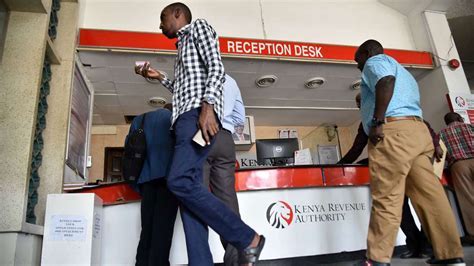Taxation is a crucial element of the government’s strategy for revenue collection, which in turn funds public services and infrastructure development.
The Kenya Revenue Authority (KRA) and the legal framework governing taxation provide specific exemptions to certain groups and entities under defined circumstances.
These exemptions intend to support vulnerable populations, encourage charitable activities, and promote investment in certain sectors.
So, Who is Exempted from Paying Tax in Kenya?
1. Persons with Disabilities
One of the most notable exemptions in Kenya’s tax framework is for persons with disabilities.
Under the Persons with Disabilities Act, individuals certified by the National Council for Persons with Disabilities (NCPWD) are exempt from paying income tax, up to a certain limit.
This exemption offers financial relief and promotes economic independence among people with disabilities.
Conditions for Exemption:
To qualify for this exemption, the individual must:
- Be registered with the NCPWD.
- Have a certificate of disability issued by a recognized medical authority.
- Be earning an annual income that does not exceed Ksh. 1.8 Million.
The tax exemption order specifies that any income exceeding this threshold is taxable under the regular income tax rates applicable to all citizens.
2. Charitable Organizations
Charitable organizations play a crucial role in social welfare and development. As such, these entities enjoy tax exemptions.
Qualifications for Exemption:
- Be registered with the relevant authorities, including the NGO Coordination Board.
- Operate exclusively for charitable purposes like relief of poverty, advancement of education, or health promotion.
- Ensure that its income and property are applied solely for the purposes for which it is established.
The Draft Income Tax (Donation and Charitable Organization Exemption) Rules, 2023, further detail the process and conditions under which charitable organizations can apply for and maintain their tax-exempt status.
These rules aim to ensure transparency and accountability in the use of funds by such organizations.
3. Education Institutions

There are tax exemptions on income, for education institutions established solely for education purposes and registered under the relevant authorities.
These institutions include schools, colleges, and universities.
This exemption aims to encourage investment in education and ensure that more resources are available to enhance the quality of education in Kenya.
Criteria for Exemption:
To maintain their tax-exempt status, these institutions must:
- Be registered under the Ministry of Education
- Use their income purposely for educational purposes and not for the benefit of any private individual.
- Reinvest any profits or surpluses in furthering their educational objectives.
4. Religious Organizations
Religious institutions operating for worship, religious instruction, or the advancement of religion are exempt from paying tax on their income. Some of these religious bodies include churches, mosques, temples, etc.

Requirements for Exemption
To qualify for tax exemption, religious organizations must:
- Be registered with the relevant authorities, for instance, the Registrar of Societies.
- Use their income exclusively for religious activities and not for commercial purposes.
- Refrain from distributing any profits to their members.
Tax exemptions for religious organizations aim to support religious activities and ensure the availability of resources to promote faith-based services and community support.
5. Income from Specific Sources
Certain income types are exempt from taxation under the Kenyan tax laws. They include:
Retirement Benefits
Income from approved retirement benefit schemes is exempted from tax to encourage savings for retirement. Talk of pension funds and provident funds; provided they meet the requirements set by the Retirement Benefits Authority (RBA).
Capital Gains on Primary Residence
Kenyan residents are exempt from paying capital gains tax on the sale of their primary residence. The aim is to encourage home ownership and investment in residential property.
Interest from Government Bonds
The government exempts income tax on interest earned from specific government bonds to encourage investment in government securities and support public finance.
6. Diplomatic and International Organizations

Diplomatic missions and international organizations operating in Kenya have historically enjoyed tax exemptions as part of Kenya’s obligations under international conventions and agreements.
These exemptions traditionally extended to:
- Income earned by diplomatic staff.
- Goods and services imported or purchased for official use by these organizations.
- Salaries and wages paid to expatriate employees provided they met certain conditions.
These exemptions were intended to facilitate the operations of diplomatic missions and international bodies within Kenya’s borders. However, recent developments indicate a significant change in the tax treatment of individuals working for these organizations.
As of January 2024, a new policy was introduced that impacts Kenyan citizens and residents working for diplomatic bodies and international organizations. According to the new directive:
Kenyan citizens and residents employed by diplomatic missions and international organizations are now subject to Pay As You Earn (PAYE) tax on their salaries and wages. This change is a marked departure from the previous tax exemptions granted to employees of these organizations.
7. Exemptions for Investors
To attract foreign and local investment, Kenya offers tax exemptions to investors in certain sectors including:
Export Processing Zones (EPZs)
Businesses operating in EPZs enjoy a ten-year corporate tax holiday, followed by a reduced tax rate for the subsequent ten years.
The objective of this incentive is to promote export-oriented industrialization.
Special Economic Zones (SEZs)
Special Economic Zones offer a range of tax incentives; exemptions from corporate tax, value-added tax (VAT), and import duties on raw materials and machinery.
The SEZs aim to attract investment in manufacturing, technology, and other key sectors.
Agro-Processing
Investors in agro-processing enjoy tax holidays and reduced tax rates to encourage investment in agriculture and boost food security in the country.
This is part of Kenya’s broader strategy to stimulate economic growth, create jobs, and enhance competitiveness in the global market.
Conclusion
The design of Kenya’s tax exemptions is to support social welfare, encourage charitable activities, promote investment, and fulfill international obligations.
Persons with disabilities, charitable and educational institutions, religious organizations, and particular investors enjoy these exemptions that help create a more inclusive and vibrant economy.
Individuals and entities seeking to benefit from these exemptions and contribute to Kenya’s economic development should have an in-depth understanding of these tax exemptions.


